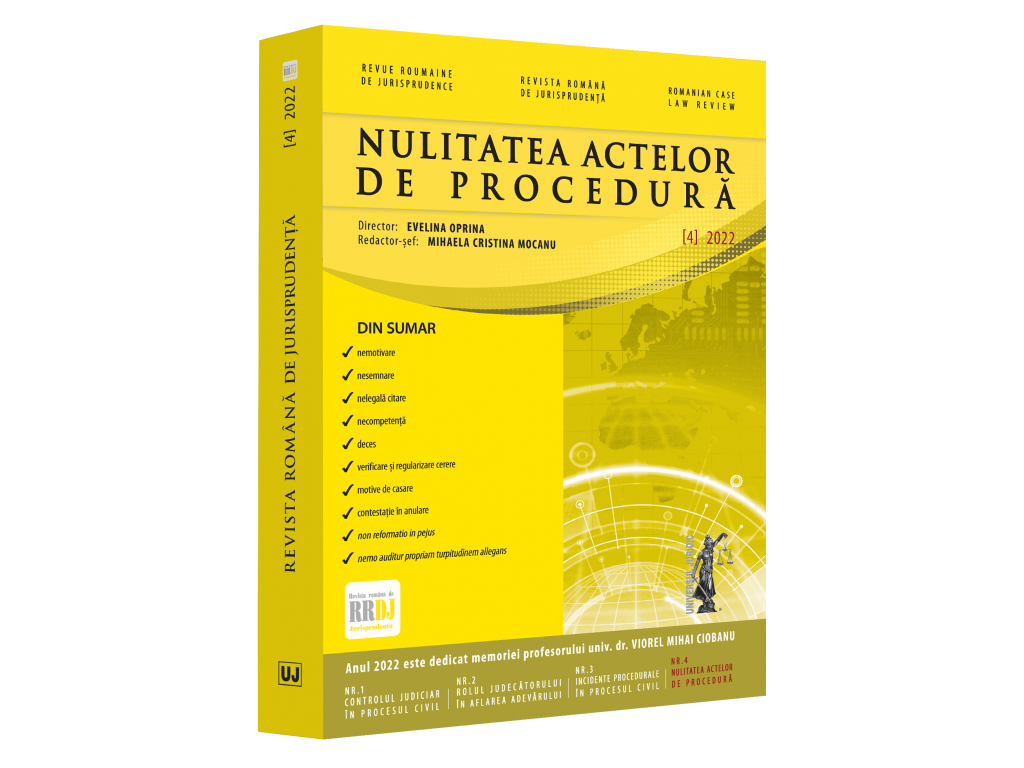Enforcement in the context of the debtor's death. Commencement and continuation of enforcemen
Some procedural and substantive law aspects of invoking the invalidity of addenda to the employment contract
Abstract
The enforcement procedure in the context of the debtor's death has again become a subject of doctrinal debate and also a non-unitary practical reason after the entry into force of Law 287/2009 on the Civil Code. Through the attempt to align the enforcement procedures in the context of the debtor's death with the requirements of a modern theory of civil procedural law, inevitably new practical difficulties arose and debates that seemed to have been completed since 1900 were revived. This study does not propose to identify a single and immutable solution but to present the currents found in the enforcement procedure, moreover, the opening of new fronts of discussion and constructive criticism.
It must clearly result the fact that the practice perceived in various ways the way the application of the provisions of art. 687-689 of the Civil procedure code. The identification of a possible way of interpreting and applying the provisions regarding forced execution in the context of the debtor's death must first of all start from the assumption and clarification of some aspects of terminology as well as some general controversial aspects in the matter of forced execution such as the moment of the start of the procedure. Under the procedural mechanism of enforced execution, it should not be ignored that there is a series of substantial rules that regulate its subjective and objective framework. Regardless of the optics and the current practice, the death of the debtor must not represent for the creditor an impediment difficult to overcome, embedded in excessive formalities.
Keywords: death, heirs, commencement, continuation, refusal, conduct, acceptance.








